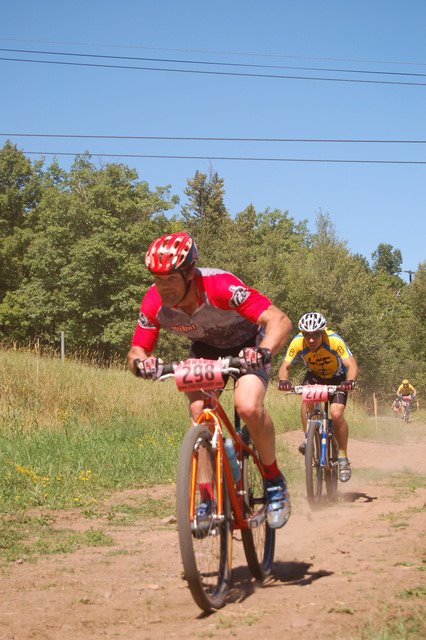Wednesday, November 16, 2011
From the famed Architech of the Fall Classic Heck of the North...Jeremy Kershaw's 11 Lessons
Dear Mr Farrow
Through my brief career in endurance racing, this is what I have learned so far (thanks to successes and failures):
1. Time Part One: In the grand scheme of one's life, 6 hours ain't long, or 12, 24, or even 50 hours. Put the event in context. The Arrowhead Ultra is many hours long, so is the Trans Iowa. But when you are in the thick of it, just remember that you are doing something amazing. You are fortunate to HAVE that time to pursue your passion (even if it is crazy).
2. Time Part Two: Break down long distances or time frames into workable chunks. There are times that the best plan is to simply make it to the next checkpoint, food station, or bend in the trail. When starting a multi hour or day event, do not fixate on the finish yet. Focus on making it to the next workable rest spot...then reassess.
3. Always be eating and drinking.
4. Always start a race comfortably cool. You will warm up soon enough.
5. Dream big. Tour Divide? Try to wrap your head around that for a few days. Be warned, though! The term "endurance junkie" is not that far off base. After a while, the local 5k won't cut it.
6. Know your machine. You will have to maintain it alone, in the dark when it's 25 below.
7. Know when to say when. Ya, it's easy to talk big and say you will never quit. But it might be the reasonable thing to do. Come prepared to think about what you are willing to go through to finish.
8. Before quitting, stop, eat and even do something else for a few minutes. Wait at least an hour (if you can afford that time). Then reassess.
9. If you are crawling into the pain cave, eat, drink and work through it. Over the duration of a multi hour/day event, you are going to have big highs and maybe some really low lows. With time, you will feel differently. Hopefully better. Sometimes worse...
10. Try to always remember that you are blessed to have the time, money and physical ability to even attempt this monster of an event. Be thankful for working legs, heart and mind. Thank your family for giving you the time away from them, too.
11. Thank the event creator with sincere acknowledgement. Chances are, they sacrificed a lot of time, money and sweat to put the event on.
Through my brief career in endurance racing, this is what I have learned so far (thanks to successes and failures):
1. Time Part One: In the grand scheme of one's life, 6 hours ain't long, or 12, 24, or even 50 hours. Put the event in context. The Arrowhead Ultra is many hours long, so is the Trans Iowa. But when you are in the thick of it, just remember that you are doing something amazing. You are fortunate to HAVE that time to pursue your passion (even if it is crazy).
2. Time Part Two: Break down long distances or time frames into workable chunks. There are times that the best plan is to simply make it to the next checkpoint, food station, or bend in the trail. When starting a multi hour or day event, do not fixate on the finish yet. Focus on making it to the next workable rest spot...then reassess.
3. Always be eating and drinking.
4. Always start a race comfortably cool. You will warm up soon enough.
5. Dream big. Tour Divide? Try to wrap your head around that for a few days. Be warned, though! The term "endurance junkie" is not that far off base. After a while, the local 5k won't cut it.
6. Know your machine. You will have to maintain it alone, in the dark when it's 25 below.
7. Know when to say when. Ya, it's easy to talk big and say you will never quit. But it might be the reasonable thing to do. Come prepared to think about what you are willing to go through to finish.
8. Before quitting, stop, eat and even do something else for a few minutes. Wait at least an hour (if you can afford that time). Then reassess.
9. If you are crawling into the pain cave, eat, drink and work through it. Over the duration of a multi hour/day event, you are going to have big highs and maybe some really low lows. With time, you will feel differently. Hopefully better. Sometimes worse...
10. Try to always remember that you are blessed to have the time, money and physical ability to even attempt this monster of an event. Be thankful for working legs, heart and mind. Thank your family for giving you the time away from them, too.
11. Thank the event creator with sincere acknowledgement. Chances are, they sacrificed a lot of time, money and sweat to put the event on.
Subscribe to:
Post Comments (Atom)

No comments:
Post a Comment
Comments?